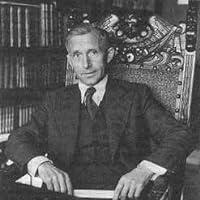
Ernst Jünger
Sobre o Autor
Ernst Jünger was a prominent German writer and philosopher known for his reflections on war, technology, and modernity. Born in Heidelberg in 1895, he gained recognition during World War I for his literary works, particularly 'Storm of Steel', which detailed his experiences as a soldier on the Western Front. Jünger’s distinctive style combined a stark realism with a philosophical depth, making his narratives resonate with readers and critics alike. His writings often explored the interplay between human experience and the mechanization of society, reflecting on the impact of war on the human psyche.
Throughout his life, Jünger continued to evolve as a thinker, engaging with various intellectual movements and remaining relevant in post-war Germany. His later works delved into themes of technology and its influence on modern life, showcasing his adaptability as a writer. Jünger’s influence extended beyond literature, impacting philosophical discourse in 20th-century Europe. His complex relationship with nationalism and his views on the individual in society sparked debates and discussions, cementing his place as a significant figure in German literature and thought.